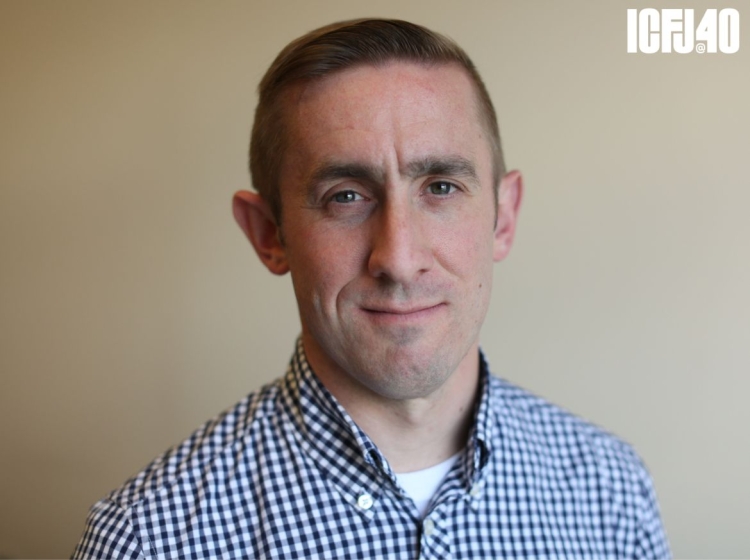Tom Meagher is a journalist based in New Jersey who covers criminal justice. He’s currently a senior editor at the Marshall Project, and works as a mentor for an ICFJ program.
“It's great that ICFJ can help journalists to receive training and build those skills and to pursue these important stories that can be difficult to undertake without this support,” he said.
This interview has been edited slightly.

How have you been involved with ICFJ over the years?
Since 2023, I have worked with the ICFJ News Corp Media Fellowship program, offering workshops on data journalism and mentoring grantees working on their reporting projects.
What was the biggest outcome from participating in the program?
It's been a pleasure for me to participate in the program and to work with emerging data journalists from around the world. In my first year, I was particularly excited to see the work of Beatrice Lauren Go, a journalist based in the Philippines who was reporting on access to sports for women and girls there. She did a fantastic project as part of her fellowship and then went on to start her own media company to continue covering the issue: Atleta Filipina.
Why is it so important right now to provide the kind of support to journalists that ICFJ does?
I don't think it's a surprise to many people that journalism is in crisis. That's true in the U.S. and I think the same can be seen in many countries around the globe. News organizations are struggling to identify and connect with the audiences and as a result many are shrinking. That means that there are few journalists doing this work and there is less time and support for the kind of journalism we need.
Thoughtful, probing investigative reporting and data journalism takes time to produce and requires skills that are difficult to develop in small, under-resourced newsrooms. It's great that ICFJ can help journalists to receive training and build those skills and to pursue these important stories that can be difficult to undertake without this support.
Why did you choose to become a journalist?
From a young age, I loved reading, and I always wanted to find a way to make a living as a writer. I studied journalism in school, but I wound up falling in love with it for a completely different reason. I still enjoy writing, though it can make you miserable when you're in the middle of a story.
I love journalism because it allows us to hold the powerful to account. We get to ask questions of elected officials and business leaders that they often don't want to answer. And this enables us to tell stories to people that they need to know, about how the systems meant to help them are falling short and how they can be fixed. To do this is an incredible privilege.
What’s one piece of advice you’d give to an aspiring journalist?
There are many skills to master when you're starting your career. The best way to do that is to report and write as often as you can and to find a good editor to help guide you. A lot of repetition in the early years of your career will help you figure out what the common mistakes are and how to avoid them when you take on more complicated stories.
Remember, journalists are not typists, here to credulously take transcription of quotes and facts from officials. We ask questions to find and tell stories people need to know. The most important thing that a journalist does is to get people to tell us things they don't want to talk about. Sometimes those people are officials who don't want to share information that might reflect poorly on them.
Other times, we're interviewing people who have been hurt or traumatized, and we want to help tell their story. Perhaps the most important skill to have is the ability to talk with people and to connect with them to unearth important insights that serve the public interest.